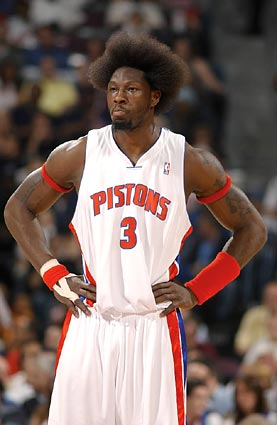
The year is 2010.
Former Oakland A's GM Billy Beane has been replaced by a young upstart: ME.
I took over the A's in 2007 with visions of giving Oakland fans their first World Series title since 1989. But, it wouldn't be easy. The A's had been riddled with injuries the last few years, and the offense was mediocre at best. Luckily, I'm playing Baseball Mogul 2008, where dreams become reality.
I've been a fan of the Sports Mogul games for years. In prior years, I've purchased the full versions of Baseball Mogul and Football Mogul. If you're not familiar with the Mogul simulations, just head over to Sports Mogul and check out all the features of their sports lineup.
But, back to the A's...I took over a franchise that has been able to compete in recent years, hasn't won the World Series in almost twenty seasons. My first move was to move some of the underachieving players that were making too much money. Chavez, Crosby, Street...all gone.
Our first two years (2007 and 2008) were spent building up a core of talent that would be with the organization for several years down the road. Although we would still try to put a good team on the field, I really wanted to stockpile young, cheap players with good upside. I would also target fairly young established players who I felt would still be producing in 4-5 years at a reasonable price.
2007 was a pretty rocky campaign, as we brought in the influx of new faces. We added Chone Figgins, Hank Blalock, and Mark Buehrle via trade or free agency. Negotiations with free agents can be tough. A lot of them want option years or no-trade clauses added onto their contracts. Serving as the A's chief negotiator as well as the GM, I am often able to talk down their price as well as getting them to lower their extra demands. Who wouldn't want to play in Oakland?
We finished '07 and '08 just above .500, not quite enough to make the playoffs either year. The 2008 team was decimated by injuries to the pitching staff, and our depth was not enough to overcome them. The fans kept coming out to the ballpark, though, knowing that they were looking at the future of the A's. We were able to pick up some nice players in the amatuer draft in both years. Those players have yet to see the field in the majors. We're not into rushing our guys before they fully develop.
2009 saw us get into the playoffs for the first time, although we had to face the Twins in the first round. Minnesota boasted a rotation that included Johann Santana, Carlos Zambrano, and Francisco Liriano. We went out 1-2-3, and the season was over.
Knowing that we need to vastly improve our squad to beat the best teams, we broke the bank in 2010. After a couple of years of light spending which allowed us to bolster our cash reserves, we went out and signed free agent Joe Mauer, who we envision being our catcher for the next 5 years. We signed Vernon Wells and aging star Vladimir Guerrero to multi-year deals. We were also able to acquire young slugger Joey Votto for four players, including the somewhat-disappointing Daric Barton.
We are currently in mid-season 2010. Our record is an eye-popping 40-15. Oakland has spent more money on the medical staff to avoid injuries to our star players. Although we have the best record in baseball, we're not counting our chickens yet. Anything can happen in the second half or in the playoffs. One game at a time, baby!
Baseball Mogul 2008 offers so much for the average baseball geek that I can't possibly list all of the great features here. You can take over an existing major league team, past or present. Don't like how the 1960 World Series played out? Go back to '60 and help the Yankees cruise to the title. You can choose from four difficulty levels, build a stadium, and play your game a season at a time or one pitch at a time. Fantasy mode allows you to create all custom teams and players. Or, you can take existing players, and shuffle them all off to random teams.
What I like best about Baseball Mogul is that I can play an entire season in one sitting. I usually play a week at a time, and the game stops play if one of my guys gets injured. I handle all of the player transactions, but I leave the in-game decisions to my (computerized) managerial staff. After the A's win a few titles, I might see if I can ressurrect the pitiful Devil Rays, or create a whole new league.
Oh, and Football Mogul 2008 just came out! I hope to have a writeup of that product right here very soon :)

